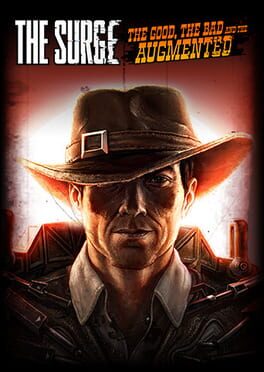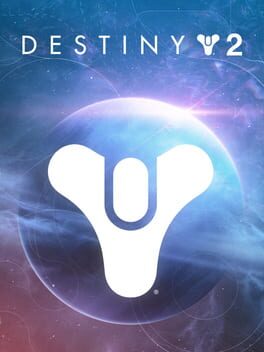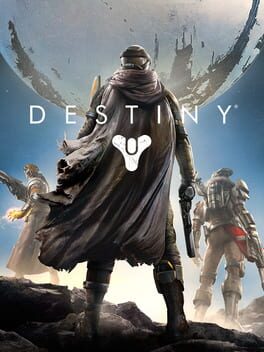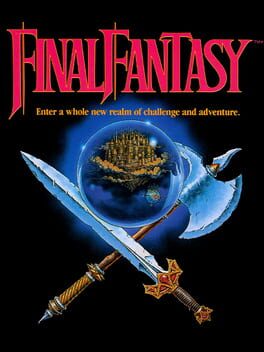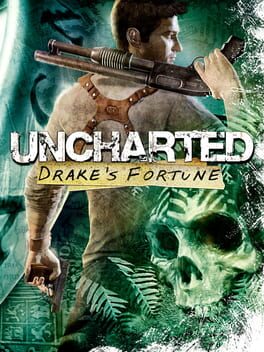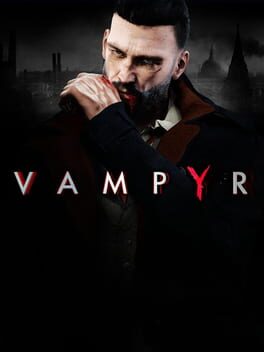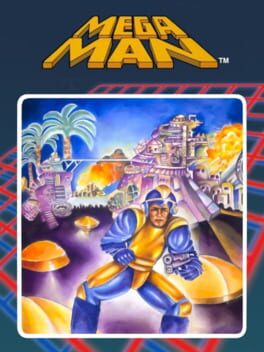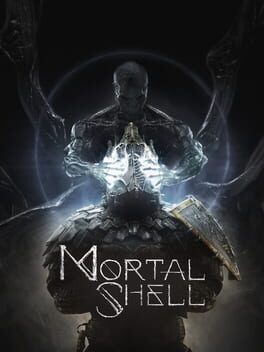squid0812
BACKER
2016
A problematic game. In some ways, this game is the most refined in the series - the level design is dense and full of secrets and the environments, bosses, and enemy designs are consistently imaginative and creepy. But this game is lacking in many of the features that made Demon’s Souls, Dark Souls, and even the much-maligned Dark Souls II so memorable. It’s hard to overstate, for instance, how disheartening it is that the under-baked narrative of this game is basically just a collection of Easter eggs and retreads from earlier Souls titles. The second half of the game is also filled with bosses and enemies that have effectively infinite stamina, leading to some drawn-out slogs with inflated difficulty (saying this as someone who has beaten this game shieldless and who generally speaking doesn’t have a hard time with it - it is not fun to fight enemies that just constantly attack with no break). This emphasis on difficulty feels like a fundamental misunderstanding on the part of the developers - the original Dark Souls was great because it tested your mind, not your reflexes. The linear world design is also a major disappointment that saps a lot of the replay value out of the game - starting a Dark Souls game by consciously choosing to take on a harder area first is a satisfying experience that is completely missing here.
With the caveat that this my least favorite modern From game out of the way, I’ll finish by saying that this game is still a lot of fun, and that you should play it. Just don’t expect something revolutionary like the original game.
With the caveat that this my least favorite modern From game out of the way, I’ll finish by saying that this game is still a lot of fun, and that you should play it. Just don’t expect something revolutionary like the original game.
2011
A flawed masterpiece. Dark Souls changed gaming - its deep and abiding respect for the player is oftentimes conflated with its infamous difficulty in a way that is extremely unfortunate. What is really revolutionary about Dark Souls is the degree of trust it bestows on the player. The game trusts you to intelligently experiment with its myriad character builds and weapons. The game trusts you to navigate its expertly designed world without the aid of a map. The game trusts you to learn the patterns of the enemies and use those lessons to overcome obstacles that seem insurmountable at first glance. In many ways, what makes Dark Souls so special is simple: it is an action game that assumes the player is an intelligent human being with a decent attention span rather than a dimwit constantly seeking instant gratification. It seems so obvious, but it’s hard to overstate how much of a sea change this was - the action genre before Dark Souls was dominated by simplistic games that spent their entire runtimes content to dangle a carrot on a stick in front of the player’s eyes.
The first half of Dark Souls is quite possibly the most satisfying gaming experience I’ve ever had. The common criticism, which is that game’s quality declines after the midway point, is accurate, which is why I refer to this as a flawed masterpiece. But make no mistake, this is a very great game - both for its joy as a play experience and for its impact on a wide variety of future games.
The first half of Dark Souls is quite possibly the most satisfying gaming experience I’ve ever had. The common criticism, which is that game’s quality declines after the midway point, is accurate, which is why I refer to this as a flawed masterpiece. But make no mistake, this is a very great game - both for its joy as a play experience and for its impact on a wide variety of future games.
A game lacking in the landscape-altering ingenuity that distinguishes some of the other recent From Software titles, Sekiro is content with merely being very good. What this game does have is an immensely satisfying interplay between challenging combat and intuitive stealth. Learning to master the complex interaction between attacking, blocking, evasion, and use of the different prosthetic tools is extremely fun. You will die A LOT getting to the point where you’ve mastered it (the early game is arguably a little too unforgiving), but once you hit cruising altitude the game really sings.
From a narrative and world building perspective, this is less unique than other From games like Dark Souls - most of the writing, while serviceable in its own right, lacks the evocative quality that distinguishes the Souls games. Many of levels are well-designed in terms of the wireframe, but the majority of the game takes place in rather repetitive villages and snowy mountains. On the video game curve, the story is rather good, but it’s not especially memorable.
On the whole, this is really a B-level effort for From - which is to say that it shouldn’t be missed.
From a narrative and world building perspective, this is less unique than other From games like Dark Souls - most of the writing, while serviceable in its own right, lacks the evocative quality that distinguishes the Souls games. Many of levels are well-designed in terms of the wireframe, but the majority of the game takes place in rather repetitive villages and snowy mountains. On the video game curve, the story is rather good, but it’s not especially memorable.
On the whole, this is really a B-level effort for From - which is to say that it shouldn’t be missed.
A very unnecessary DLC that unfortunately bills itself as if it will have valuable story content - it does not. This is a series of combat arenas with a variety of gimmicks. In one level, you may have to fight in the shadows due to sun-inflicted AOE damage, while in another, you might have to defend a platform from waves of enemies, and so on. The levels culminate in one of three extremely unimaginative bosses (what if there was a normal enemy that wore a cowboy hat and had inflated HP???). The whole thing is spruced up with the flavor of a generic Western setting, presumably to make it seem like more work went into this than really did. I like the combat in The Surge - but certainly not enough to engage with it for its own sake. If this was free, I wouldn't have bothered writing this - but the fact that they charge money for this really sticks in my craw.
2017
I didn't really get into this until roughly a year and a half after release, so I can't speak about the more barren status of the game immediately post-release. But by the time I got to it, however, this was pretty much the peak of what this type of game can be for me: extremely smooth and tactile shooting, dense and good-looking environments, and, most importantly, fun things to do as you watch the numbers go up. Playing online loot shooters like this may be a fundamentally soulless activity, but it's still something that Bungie managed to actually figure out how to make the grind fun. Gambit Prime is a genuinely excellent and addictive fusion of PvP and PvE. The strikes, especially those added with the Forsaken expansion, take place in more imaginative environments and have much more varied boss fights. Surprisingly, Bungie actually put a modicum of effort into the story content. It's not spectacular or anything, but it's at least competent and it gives the player something to hold onto in a way that was completely missing in the original game. As The Taken King did with first Destiny, Forsaken added a LOT of the appeal that makes this playable over a longer period. I stopped playing right before Shadowkeep came out, mostly because these games have a fairly limited shelf life for me. But, unlike with the original game, I actually hold some positive memories of this one.
2014
I’m always rather taken aback by those who argue that the original Destiny is preferable to the sequel. I suspect it’s nostalgia speaking, because it seems to me that the original game is merely a rough draft for what Destiny 2 would eventually become. The shooting is as satisfying and polished as ever, but that isn’t enough to make up for the endless grind and lack of things of do, especially prior to The Taken King expansion (which mercifully added bosses that did more than simply lumber around as massive bullet sponges). Levels like the moon and the cosmodrome are also rather bland and ugly compared with those of the sequel. The story content, which has clearly never been a huge focus for Bungie, is especially half-assed here. Since the story and lore are so perfunctory, no one should feel bad starting with the sequel.
1987
A pretty rough take on the JRPG genre that was revolutionary at the time of release, mostly because it pioneered the then-novel concept of mashing together a bunch of features stolen straight out of D and D with the unique sense of weirdness peculiar to Final Fantasy. It's actually fairly shocking how many of the Final Fantasy staples are here, even in the earliest days of the franchise - the airship, elemental crystals, an absolutely excellent soundtrack ('Matoya's Cave' - chef fingers!!). Unfortunately, many of the most annoying early JRPG tropes are also present here in spades - extremely vague directions on what to do next, a barebones storyline (what Garland / Chaos is up to is cool, but it just doesn't impact the majority of your playtime), and the outright necessity of grinding to keep your party powerful enough to progress. I was engaged in the story for the first hour and the last hour, but in between is about 30 hours of dungeon crawling with very little context or exterior motivation (to be fair, there are occasionally some quirky and interesting enemy and dungeon designs).
As a quick FYI, be sure to use a guide for your magic users - a number of the spells in this game straight up don't work.
As a quick FYI, be sure to use a guide for your magic users - a number of the spells in this game straight up don't work.
This review contains spoilers
None of the Uncharted games (including 4, which is relatively new) have aged particularly well, but the first entry in the series takes the cake in terms of being borderline unplayable in 2021. The charming interplay between genuinely likeable characters has always been the main draw of the series, and it’s present here as well, but everything else about this is really tough to swallow. The shooting is already bad enough, but the fact that enemies are massive bullet sponges (granted, also a problem in 2 and 3) makes every fight an interminable slog. The setting looks good for a game of this vintage, but it’s also effectively a hallway almost completely lacking in side paths and nooks that we would see in the later games.
The set pieces, so often the highlight of Uncharted games, are a mixed bag here - the bit with the U-boat stuck deep in the jungle, for instance, is a cool idea that is marred by the incredibly dumb and obvious fake death of Sully. The prison escape with Elena, in which you fight off pursuing vehicles with a machine gun mounted to the back of a jeep, is probably the best story beat and the game’s only successful gameplay switch away from the horrid third person shooting. But that small success is counterbalanced by the jet ski sequences, which are so awful that it’s unfathomable that they even made it into the game.
The story, which is a major strength in later games, is a fairly standard ripoff of Raiders of the Lost Ark, right down to the Nazis mutated by a cursed artifact. Still, the banter and chemistry between Nathan, Sully, and Elena is enjoyable, and the bumbling Eddie Raja is pretty amusing as one of villains. Stay around for the cutscenes, but don’t expect much from the gameplay until the sequels.
The set pieces, so often the highlight of Uncharted games, are a mixed bag here - the bit with the U-boat stuck deep in the jungle, for instance, is a cool idea that is marred by the incredibly dumb and obvious fake death of Sully. The prison escape with Elena, in which you fight off pursuing vehicles with a machine gun mounted to the back of a jeep, is probably the best story beat and the game’s only successful gameplay switch away from the horrid third person shooting. But that small success is counterbalanced by the jet ski sequences, which are so awful that it’s unfathomable that they even made it into the game.
The story, which is a major strength in later games, is a fairly standard ripoff of Raiders of the Lost Ark, right down to the Nazis mutated by a cursed artifact. Still, the banter and chemistry between Nathan, Sully, and Elena is enjoyable, and the bumbling Eddie Raja is pretty amusing as one of villains. Stay around for the cutscenes, but don’t expect much from the gameplay until the sequels.
2018
Vampyr is an intriguing if unpolished vampire RPG where the primary draw is building relationships with the many citizens (there are over 60) of London, before deciding whether you want to murder them and drink their blood for XP. All against the backdrop of the flu-ridden England of 1918 (a very cool setting that unfortunately gets a bit fatiguing, considering 3 out of 4 regions in the game are slums with few distinguishing characteristics).
Alas, it’s a cool concept that doesn’t really mesh with the storyline. In fact, the story ended up being my main problem with this game - it’s a clunky and generic tale of ancient evil and tainted blood (vampire story staples) that features a romance subplot which is very tacked-on and out of left field. Interacting with the citizens almost seems like it is part of a different game, so little does it have to do with overarching plot. Which is too bad, because interacting with the citizens is a lot of fun. You can use a variety of means to find out their backstories, which are occasionally rote but more frequently are pleasantly surprising. Almost all of the quality storytelling in this game is in the character work, not the main storyline. And the mechanic of having to choose whether you will get more powerful by killing off citizens or try to help stabilize the city by healing the sick is a fantastic role playing concept.
The last major element of the gameplay is the combat, a very light take on the standard Souls style that has a rubbed a lot of people the wrong way. I actually rather liked the way it felt, however. The main issue for me ended up being fatigue due to a lack of enemy variety. You spend most of the game fighting feral quasi-vampires called Skals or standard human guards. They are a few variants of each, but I felt like I had seen all the game had to offer enemy-wise from a very early point.
On the whole, this is a very flawed game that is built on some very interesting ideas. A more refined follow-up would have the potential for greatness.
Alas, it’s a cool concept that doesn’t really mesh with the storyline. In fact, the story ended up being my main problem with this game - it’s a clunky and generic tale of ancient evil and tainted blood (vampire story staples) that features a romance subplot which is very tacked-on and out of left field. Interacting with the citizens almost seems like it is part of a different game, so little does it have to do with overarching plot. Which is too bad, because interacting with the citizens is a lot of fun. You can use a variety of means to find out their backstories, which are occasionally rote but more frequently are pleasantly surprising. Almost all of the quality storytelling in this game is in the character work, not the main storyline. And the mechanic of having to choose whether you will get more powerful by killing off citizens or try to help stabilize the city by healing the sick is a fantastic role playing concept.
The last major element of the gameplay is the combat, a very light take on the standard Souls style that has a rubbed a lot of people the wrong way. I actually rather liked the way it felt, however. The main issue for me ended up being fatigue due to a lack of enemy variety. You spend most of the game fighting feral quasi-vampires called Skals or standard human guards. They are a few variants of each, but I felt like I had seen all the game had to offer enemy-wise from a very early point.
On the whole, this is a very flawed game that is built on some very interesting ideas. A more refined follow-up would have the potential for greatness.
1987
The first take on this quintessential series of action platformers is mildly enjoyable but also frequently frustrating. The classic Mega Man formula - fight a series of bosses in any order, claiming their powers as you go - is here in spades, and the charming simplicity of that format goes a long way. Still, a lot of the trimmings that would make some of the sequels so memorable are pretty rough here. Most of the levels and enemy designs are fine enough in the wireframe, but they don't come close to the level of charm that we would see in Mega Man 2 or 3. The bosses, while affably goofy, are mostly limited to jumping around and throwing things at you. And then there's the straight BS - the janky-ass platforms in Gutsman's level, the dreaded disappearing blocks in the Iceman and Elecman levels, all of the times the game exposes you to unavoidable damage (those hopping screw-like enemies are the worst). The four-level slog that is Dr. Wily's fortress is enough to drive me up a wall.
The Mega Man ethos, evident here even in the early days, is charming enough make this more good than bad for me, but be prepared to deal with a lot of awful ideas that were thankfully ditched in later games.
The Mega Man ethos, evident here even in the early days, is charming enough make this more good than bad for me, but be prepared to deal with a lot of awful ideas that were thankfully ditched in later games.
2020
Neat if unspectacular. A short, breezy entry into the ever-expanding Souls-like genre, this game is pretty fun in spite of feeling a bit like consuming empty calories in certain ways. The level design is complex, but unnecessarily so in many cases (what is up with all of the crawlspaces that bring you to places you likely already discovered by simply walking along a path?) The plot is an extremely stock-standard re-take of Dark Souls post-Lordvessel acquisition - kill some demigods, bring back their essences to a giant, vaguely ominous animal creature, fight the final boss, ascend to a highly compromised form of godhood, etc. Along the way, you'll find the elliptical, ambiguous lore notes that we've come to expect from these stories, but as with most non-From games in this genre, these are dull and ponderous rather than intriguing or mordantly humorous.
So why do I still kind of like this game despite thinking the story is basically complete trash? Well, the gameplay, of course! This game feels great in the hands. Most of what I enjoy in the combat is rooted in the 'hardness' mechanic, one of the cooler twists on Soulslike combat that I've seen. Your character can harden to avoid damage, but you can also get creative by hardening while attacking, hardening to nullify status effects, and so on. It's an unexpectedly deep mechanic that contributes to making the combat a lot of fun. There is also a charming simplicity to the enemy movesets that reminded me of early From games like Demon's Souls - every enemy (including most bosses) has at most 3-4 moves, and each is clearly telegraphed with plenty of time to respond. This is not the twitchy, reflex-based combat of Bloodborne or Dark Souls III, but rather the stodgier, more methodical combat of Demon's Souls or Dark Souls. That may disappoint some, but I like both. Slow and methodical is rarer these days, so I was pleasantly surprised. Overall, a fun if minor game that feels a bit like a proof-of-concept project that From might have made in 2008.
So why do I still kind of like this game despite thinking the story is basically complete trash? Well, the gameplay, of course! This game feels great in the hands. Most of what I enjoy in the combat is rooted in the 'hardness' mechanic, one of the cooler twists on Soulslike combat that I've seen. Your character can harden to avoid damage, but you can also get creative by hardening while attacking, hardening to nullify status effects, and so on. It's an unexpectedly deep mechanic that contributes to making the combat a lot of fun. There is also a charming simplicity to the enemy movesets that reminded me of early From games like Demon's Souls - every enemy (including most bosses) has at most 3-4 moves, and each is clearly telegraphed with plenty of time to respond. This is not the twitchy, reflex-based combat of Bloodborne or Dark Souls III, but rather the stodgier, more methodical combat of Demon's Souls or Dark Souls. That may disappoint some, but I like both. Slow and methodical is rarer these days, so I was pleasantly surprised. Overall, a fun if minor game that feels a bit like a proof-of-concept project that From might have made in 2008.
1985
The ultimate critic-proof game. The first few worlds of this genre-defining game are fun in spite of being straightforward and simple to a degree that doesn’t really fly in 2021. The last few worlds feel especially clunky, with overly precise platforming demands and poorly signaled navigation puzzles. Mario’s slipperiness in this game is a such a polarizing element for me. It goes beyond encouraging to flatly demanding near-constant forward movement. This contributes to the fun of the first few levels, but basically precludes the type of precision they expect in the platforming of the last 2-3 worlds. So what is smooth and rhythmic in worlds 1-4, becomes rather clunky and disjointed in worlds 5-8 (or maybe I am just bad). A harbinger of better things to come, but the original ‘run and jump’ retains a raw, elemental charm.



